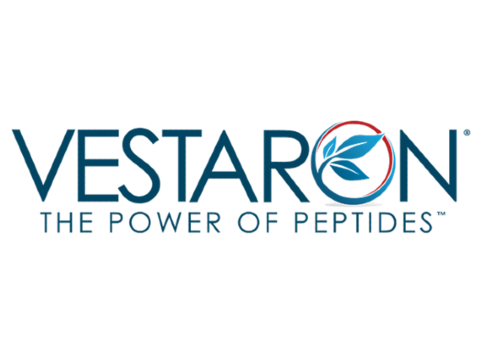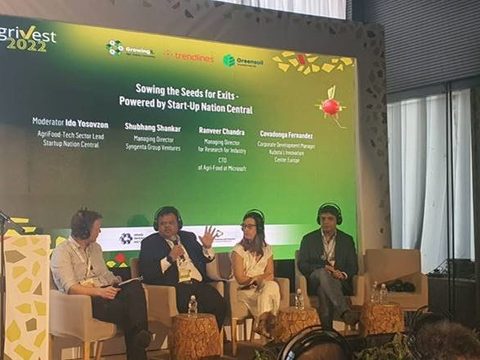MycoTechnology nets $85m Series E funding from Omani sovereign fund, multiple ag & food giants
MycoTechnology, an Aurora, Colorado-based startup using fermentation technology and mushroom mycelia to create novel food products, has closed an $85 million round of funding.
- The Series E round was led by an affiliate of Omani sovereign wealth fund, the Oman Investment Authority.
- New investors included Nourish Ventures, the VC arm of Griffith Foods; Alphacy Investment; Rage Capital; and Siddhi Capital.
- Previous investors re-upping for this round included Tyson Foods‘ Tyson Ventures; Continental Grain Company; Bunge‘s Bunge Ventures; Maple Leaf Foods; S2G Ventures; Evolution VC Partners; and Gaingels.
In a statement, the startup said it will use the funding to “further capitalize” on its fermentation technology platform and expand its geographical footprint, launching its products in Europe, Asia, and the Middle East as priorities.
How it works:
Founded in 2013, MycoTechnology says it harnesses “the metabolic engine of mushrooms, known as mycelium, using natural fermentation to create novel ingredients.”
These ingredients offer solutions to issues such as “sugar reduction, food insecurity, sustainable protein, [and] natural immune support.”
Mycelium are thread-like structures, resembling plant roots, that allow fungi to absorb nutrients by secreting enzymes into their surrounding environment.
Among the products MycoTechnology has released so far is ClearIQ, a “kosher and halal […] all-natural, GMO-free, organic bitter blocker” that can be added to food and beverage products to reduce any bitter, astringent, metallic, and sour off-notes in their flavor.
FermentIQ is its plant-based meat analog ingredient, made by fermenting pea and rice protein with shiitake mycelium. The startup claims that FermentIQ can enhance the taste, functionality, and nutritiousness of plant-based protein products.
Why it matters:
While plant-based meat replacements continue to become more and more commonplace, for many consumers they still fall behind conventional, animal-derived meat when it comes to taste.
A recent study by food consultancy Chew found that even a mid-range, animal-derived beef burger was able to beat nine of the US’s top-selling plant-based analog patties on both flavor and nutrition (the only category where the plant burgers won was sustainability.)
Ultimately, if plant-based products don’t match up to meat on taste, then consumers who aren’t motivated by special dietary or ethical reasons aren’t going to switch. And that means the continued, exponential growth of livestock farming in order to produce conventional meat – something that causes well over a third of total global greenhouse gas emissions, by some estimates.
Notably, MycoTechnology investor Maple Leaf Foods released its annual and quarterly results last month. Speaking on a conference call at the time, president Curtis Frank said: “All major brands and products across the category are experiencing similar challenges, which largely seems to be driven by consumers’ experience in terms of taste, price, degree of processing and ease of preparation.”
Perhaps this explains why so many ‘Big Ag’ corporates have backed MycoTechnology, beyond the fairly obvious sustainability angle: with their long-term involvement in livestock farming and the manufacturing and processing of meat products, they are especially alert to the need for alt-protein products to taste the same — or better — than their conventional meat counterparts. They’ve realized that they need to invest in alt-protein to secure a share of the food market of the future; they’re also cognizant that those alt-protein products have to be as palatable to consumers as the meat they already sell them.
What they say:
Alan Hahn, co-founder and CEO, MycoTechnology, said in a statement:
“This fundraise is a validation of the potential of our breakthrough proposition and next-generation ingredients. [It] will power the imagination of our incredible team, driving our plans to add more new-to-the-world ingredients from the fungal kingdom. We have big things coming!”
Competitive landscape:
Other startups working with mycelium, for food or materials purposes, include:
- Atlast (US) – myco-bacon and other whole cut meat analogs
- Bolt Threads (US) – leather alternative
- Meati (US) – more whole-cut meat analogs
- Mushlabs (Germany) – ‘circular’ liquid fermentation of protein
- Mycorena (Sweden) – fermented ingredients for alt-protein production
- Mycotech Lab (Indonesia) – mycelium-based building materials
- MycoWorks (US) – custom-grown leather alternative [disclosure: AFN‘s parent company, AgFunder, is an investor in MycoWorks.]
Source: agfundernews.com






